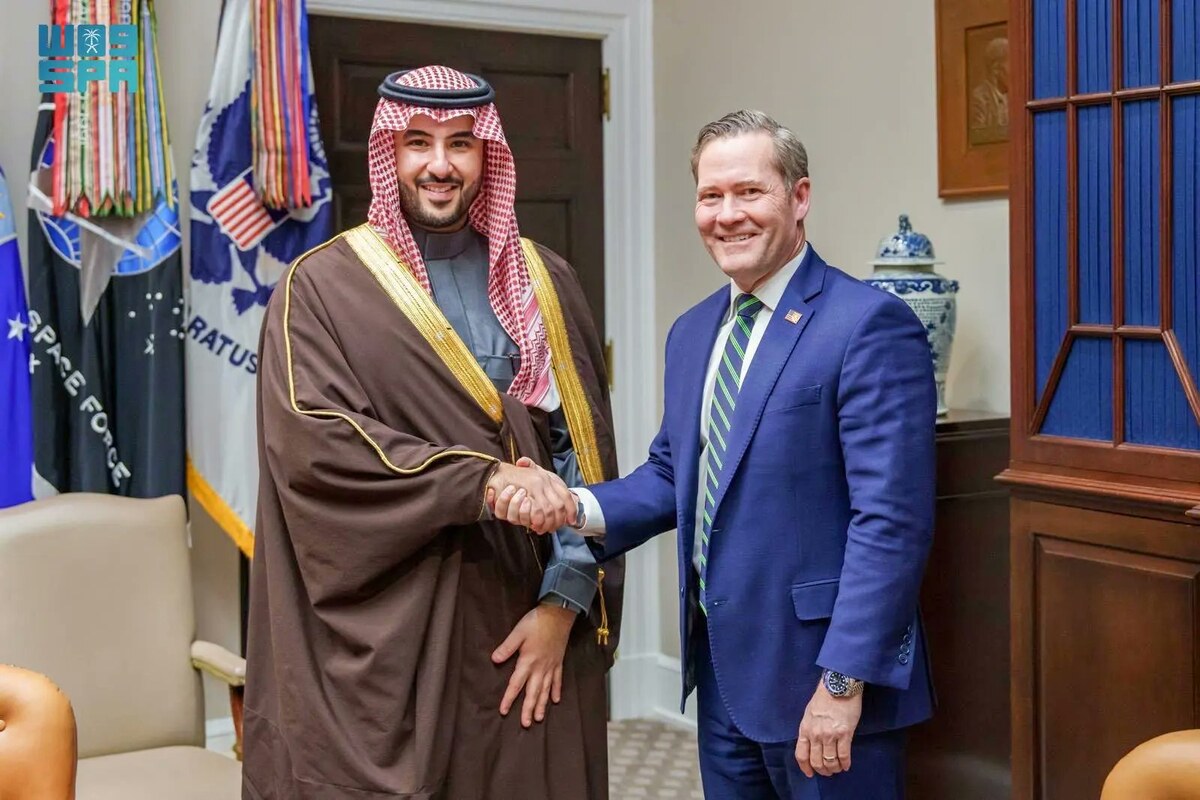JEDDAH: The first female fencer has been appointed as Saudi Arabia’s student sports ambassador to the International University Sport Federation.
The appointment of Ruba Mohammed Al-Masri to the role highlights the Kingdom’s empowerment of female athletes in recent years.
The FISU Student Ambassador program aims to promote the development of university sports and support sporting volunteer programs in ambassadors’ home countries.
Al-Masri told Arab News: “I consider this historic achievement for Saudi sports as a true turning point. It fills me with pride and honor. This success is not just an individual accomplishment; it reflects the tremendous efforts being made by the Kingdom to support women’s sports and empower youth. Seeing a Saudi girl shine on the international stage represents a dream come true, and it opens new doors for young talents.”
Princess Reema bint Bandar, Saudi Arabia’s ambassador to the US, highlighted Al-Masri’s achievement as an example of the Kingdom’s dedication to advancing women in sports.
She posted on X: “Women’s fencing in Saudi Arabia has made great strides from 2016 when Lubna Al-Omair competed in the Olympic Games in Rio to today with athletes like Ruba.”
https://x.com/rbalsaud/status/1835840617261252823
The acknowledgement from Princess Reema was an emotional milestone for Al-Masri. She said: “It felt like a validation of all the hard work, dedication and sacrifices I had made throughout my journey as a female athlete.
“Her support and recognition not only inspired me but also underscored the importance of empowering women in sports. Knowing that such a prominent figure believes in my potential is a tremendous honor and a powerful encouragement to keep pushing forward.”
Al-Masri’s fencing journey began in April 2018 and was deeply influenced by her father, a former champion in the Arab region.
“Growing up, I was always surrounded by his memorabilia — photos and medals that showcased his accomplishments throughout his athletic career,” she said. “Moreover, with the recent initiatives led by our Crown Prince to empower women in sports, I felt encouraged to follow in his footsteps.”
Support from her family, particularly her parents, was instrumental in shaping her passion and ambition. But there were challenges along the path — Al-Masri faced several obstacles, including finding suitable training facilities and balancing her academic and professional commitments.
“Finding suitable training facilities and the ability to register female athletes in clubs were significant hurdles,” she said. “Despite these challenges, I am proud to say that I have persevered and built a name for myself in various fields. I hold a double major in law and aesthetic specialization, and I have simultaneously worked for three different marketing companies while excelling in my sport.”
As a student-athlete ambassador, Al-Masri intends to make a real impact on future generations.
“I aim to inspire young women to pursue their passions in sports while balancing their educational and personal lives,” she said.
“Having successfully navigated my own journey … I believe my experiences can serve as a powerful testament to what is achievable.”
A defining moment in Al-Masri’s career came with the challenge of establishing her name on the international stage, overcoming issues such as unfair judging.
“Despite these challenges, my determination only grew stronger,” she said. “With the guidance and expertise of my father, I developed a unique training plan which enabled me to achieve significant milestones, including winning the first Saudi bronze medal in the Under-23 European Championships in 2023. This was a groundbreaking accomplishment for Saudi fencers in Europe.”
Looking ahead to the 2024/25 season, Al-Masri is eager to engage with the FISU Student Ambassadors Program.
“I look forward to collaborating on group proposals, participating in educational webinars, celebrating the International Day of University Sport, and presenting our action plans,” she said. “This structured approach will empower me to support female athletes and contribute effectively to the broader student-athlete community.”
The support from her community and mentors has been pivotal.
“The Saudi University Sports Federation, particularly Dr. Professor Khalid Al-Muzaini and Salma Ibrahim, has played a crucial role in my development,” she said. “I am also grateful to my coach, Fawad Al-Nasiri, for selecting me as the first Saudi female athlete to represent our country at the 2023 Summer Universiade in China. Their influence has been profound, motivating me to strive for greater heights.”
And to young girls in Saudi Arabia interested in sports, Al-Masri advised: “Embrace every opportunity that comes your way, and don’t shy away from challenges. Surround yourselves with supportive mentors and friends who believe in you and encourage your growth. Your dreams and aspirations are valid, and you have the potential to achieve greatness in the world of sports.”
































